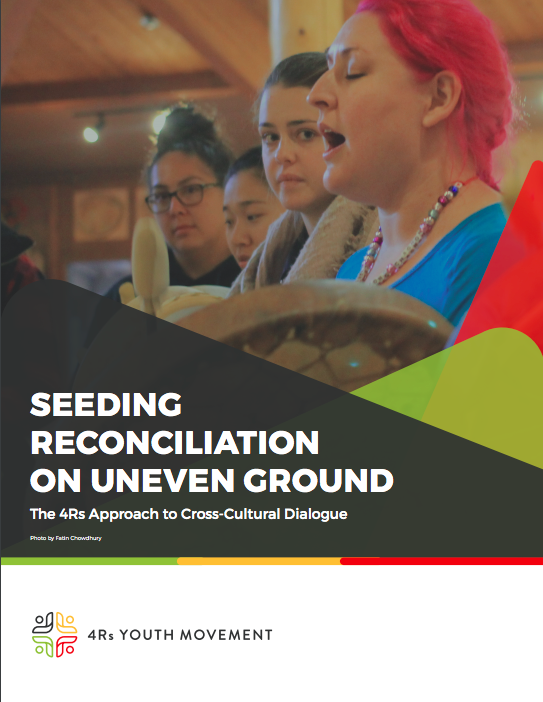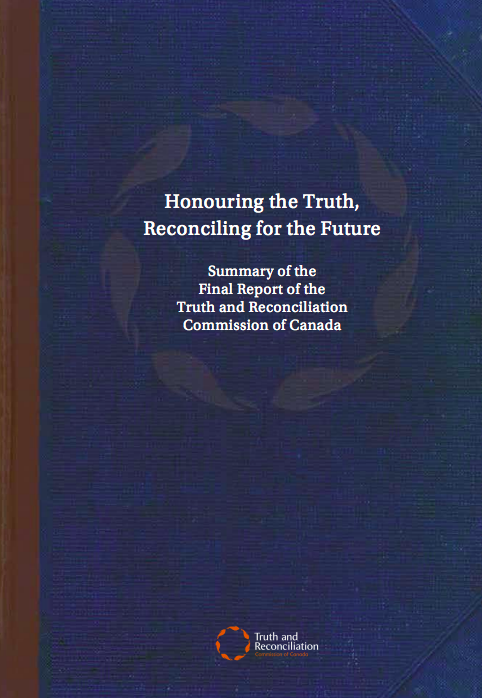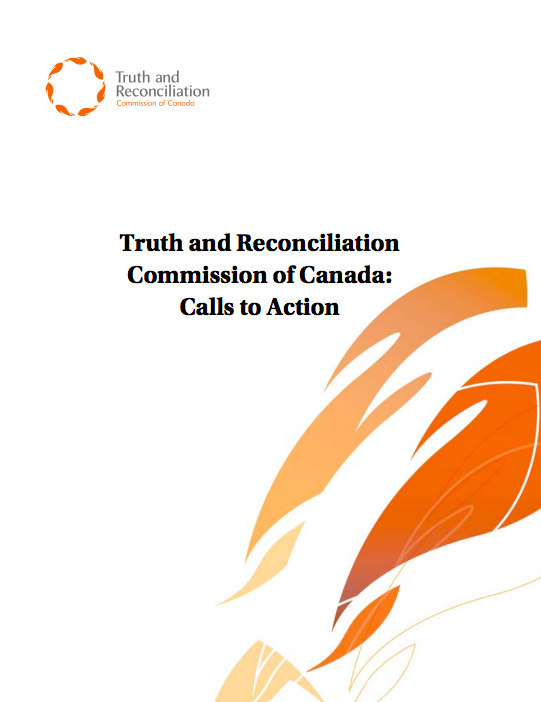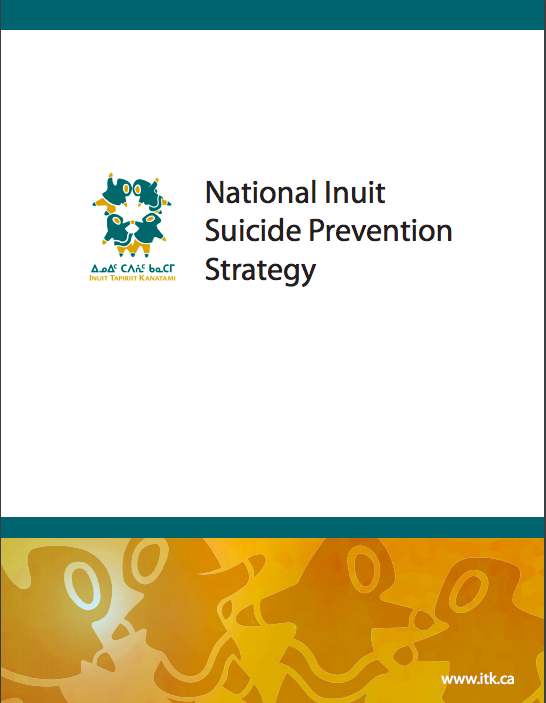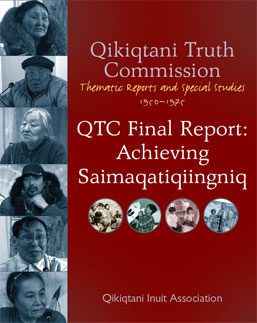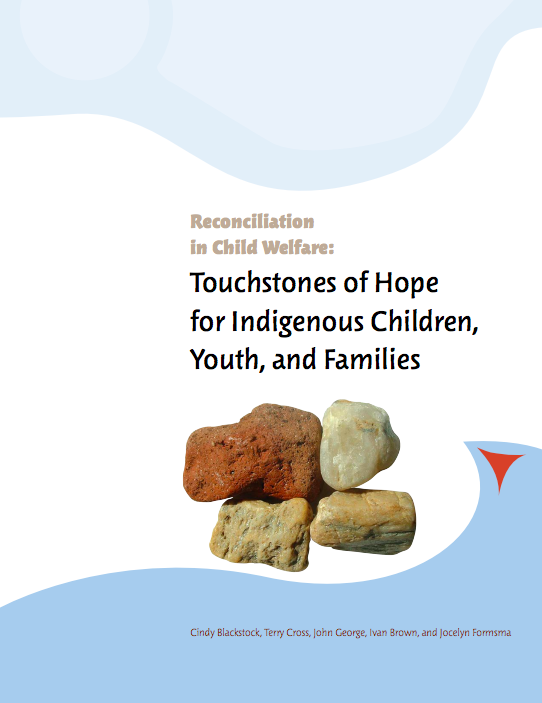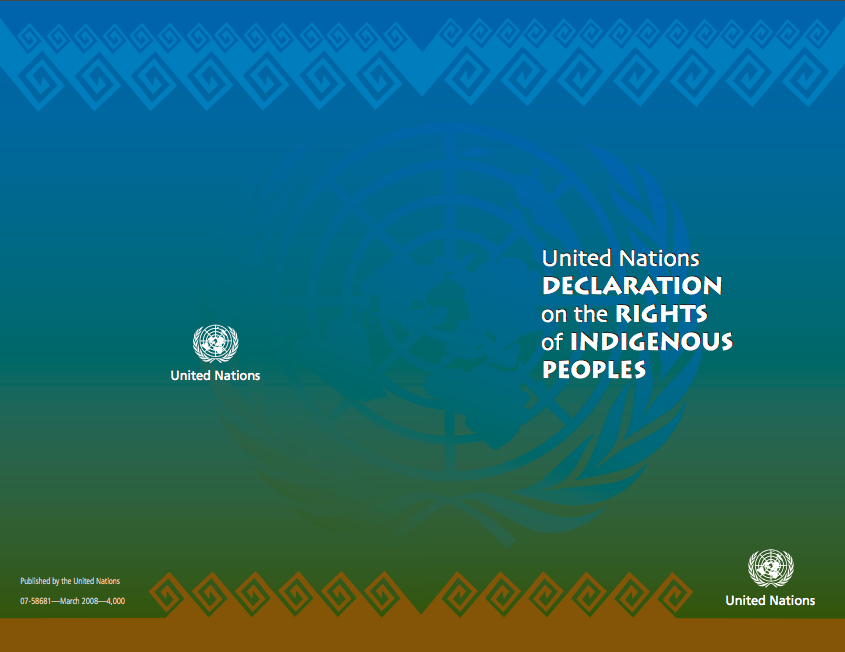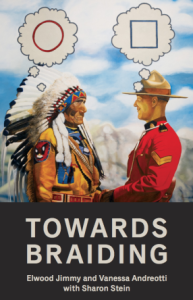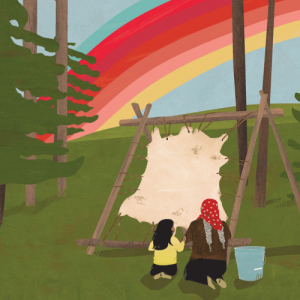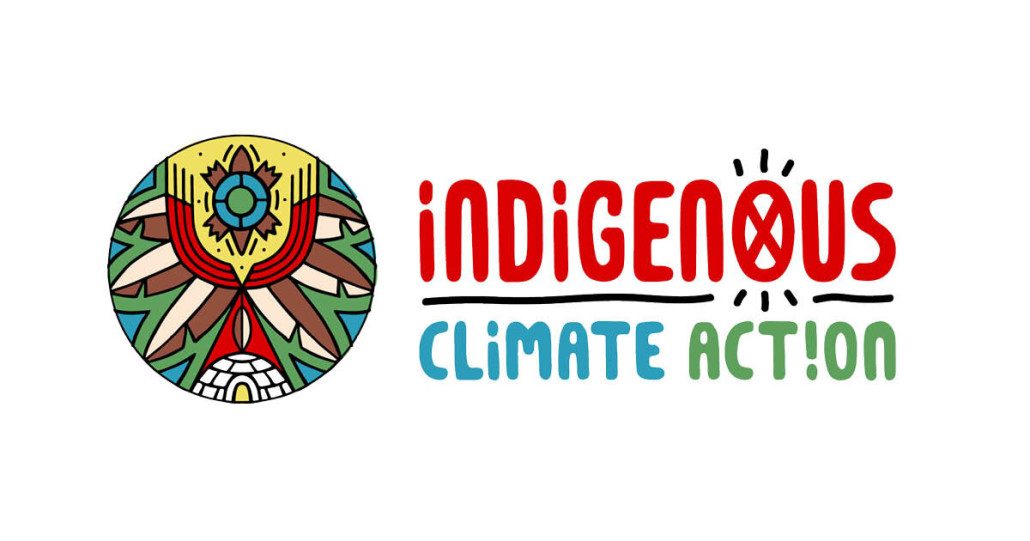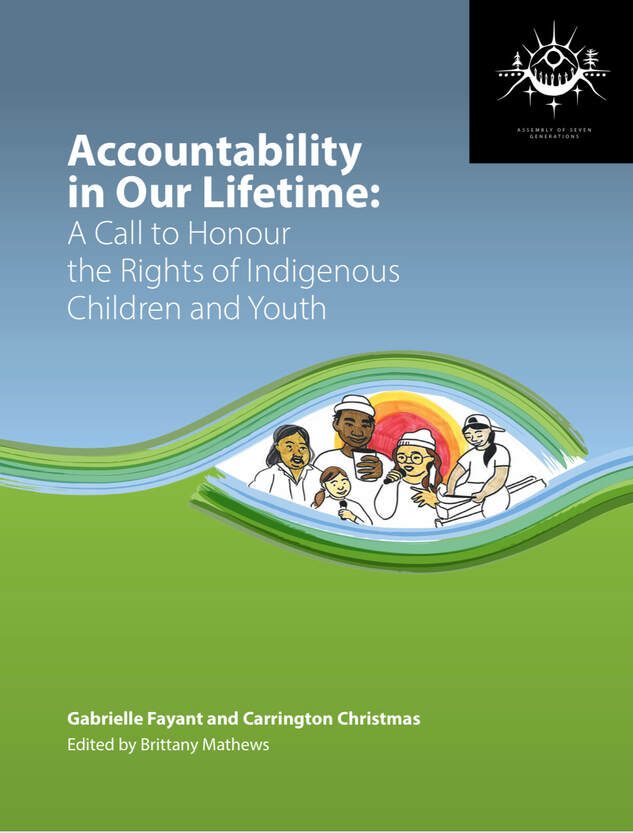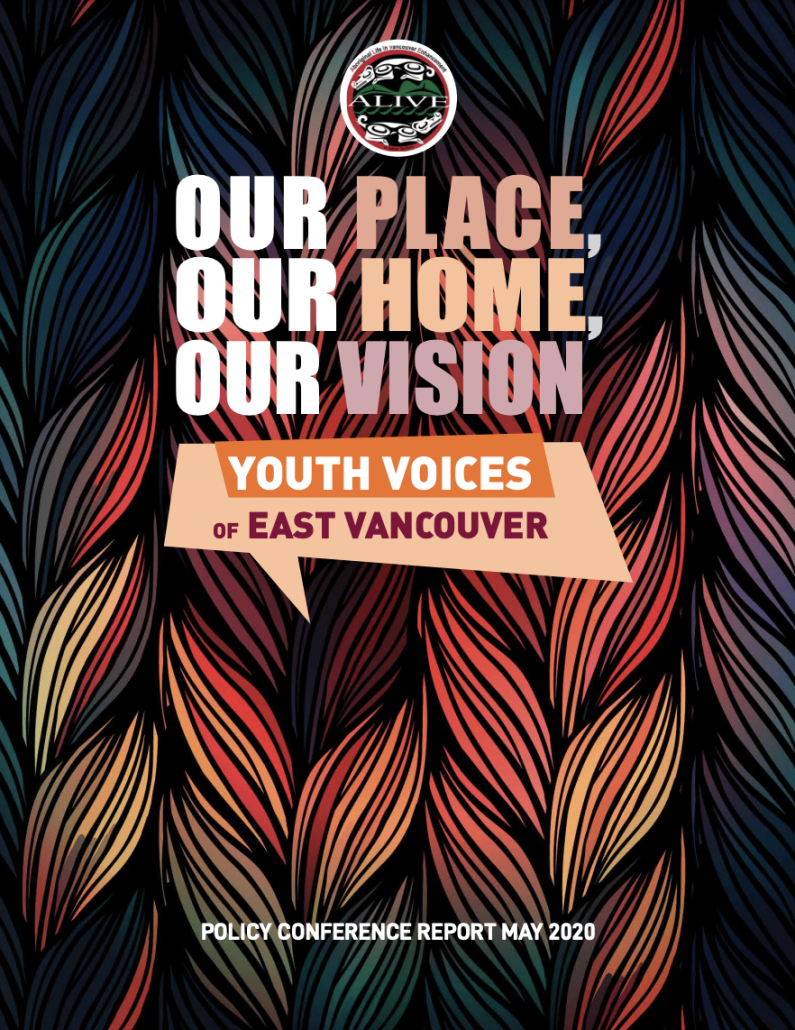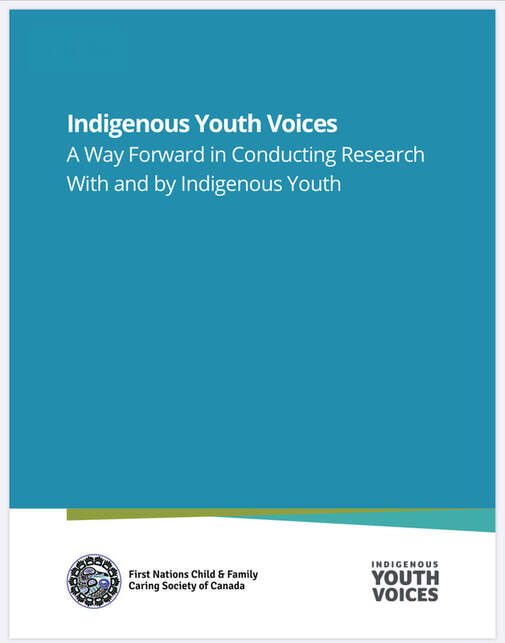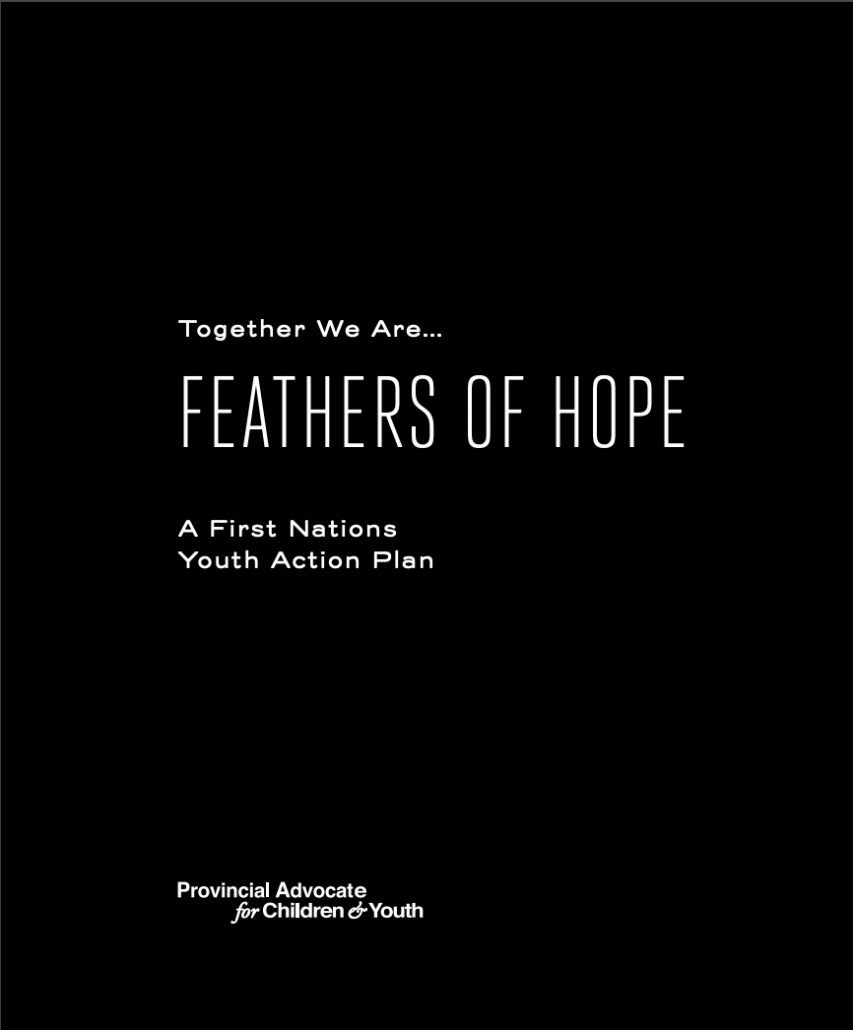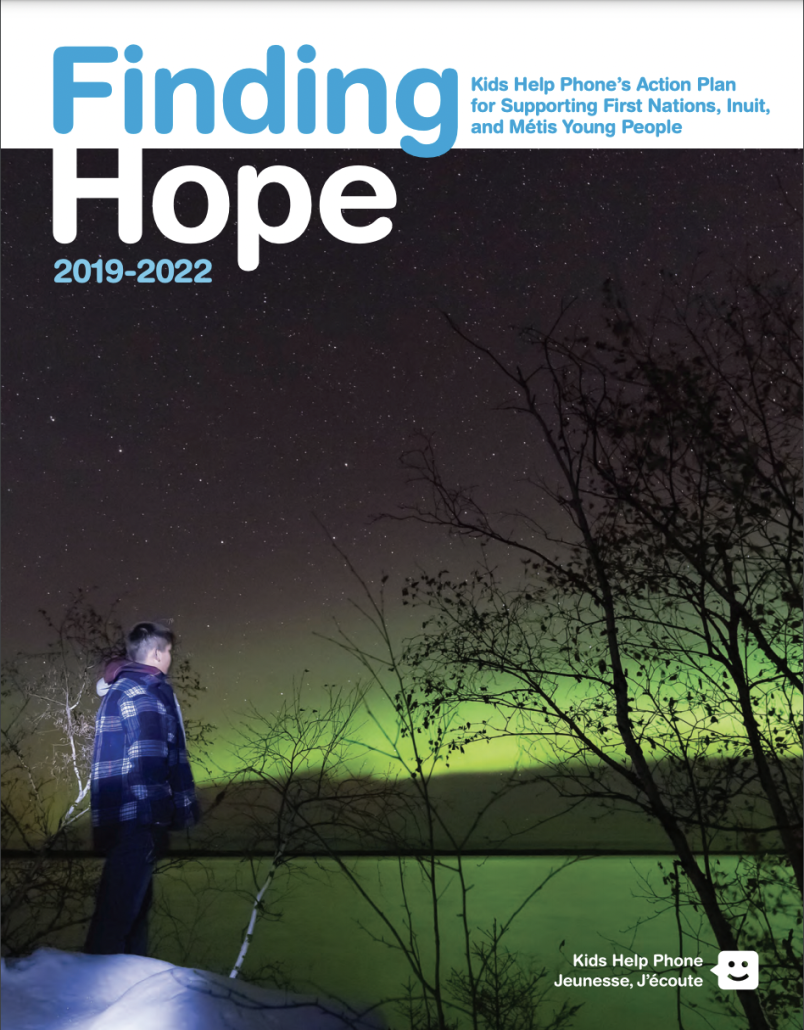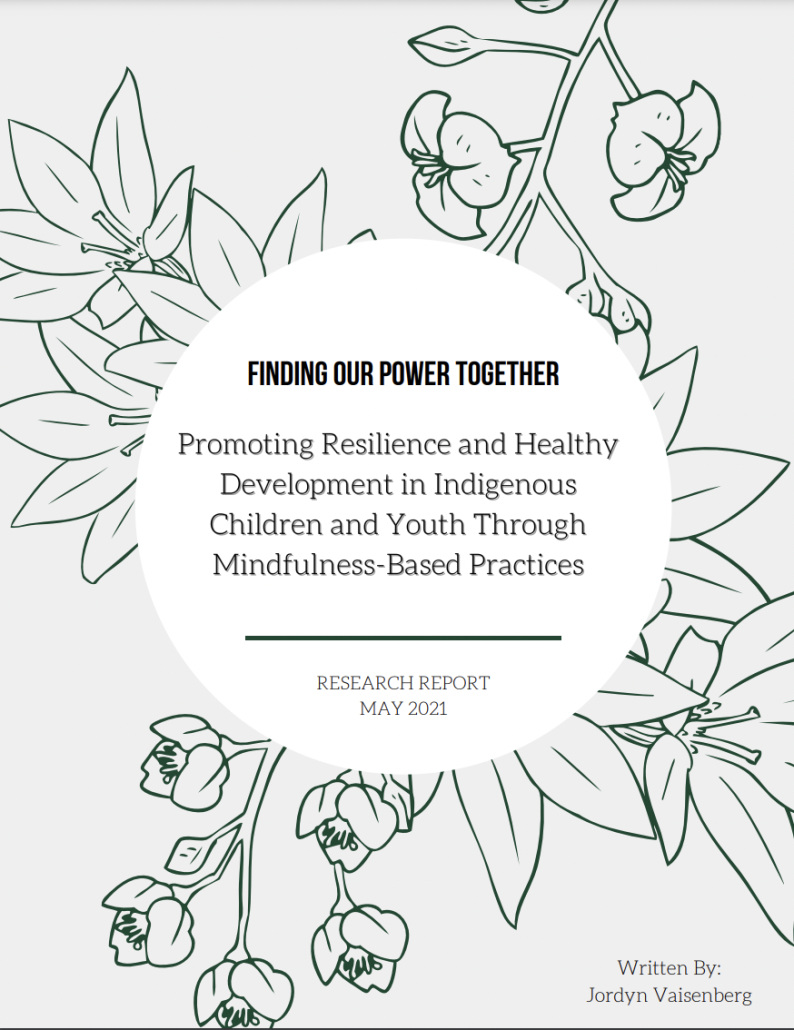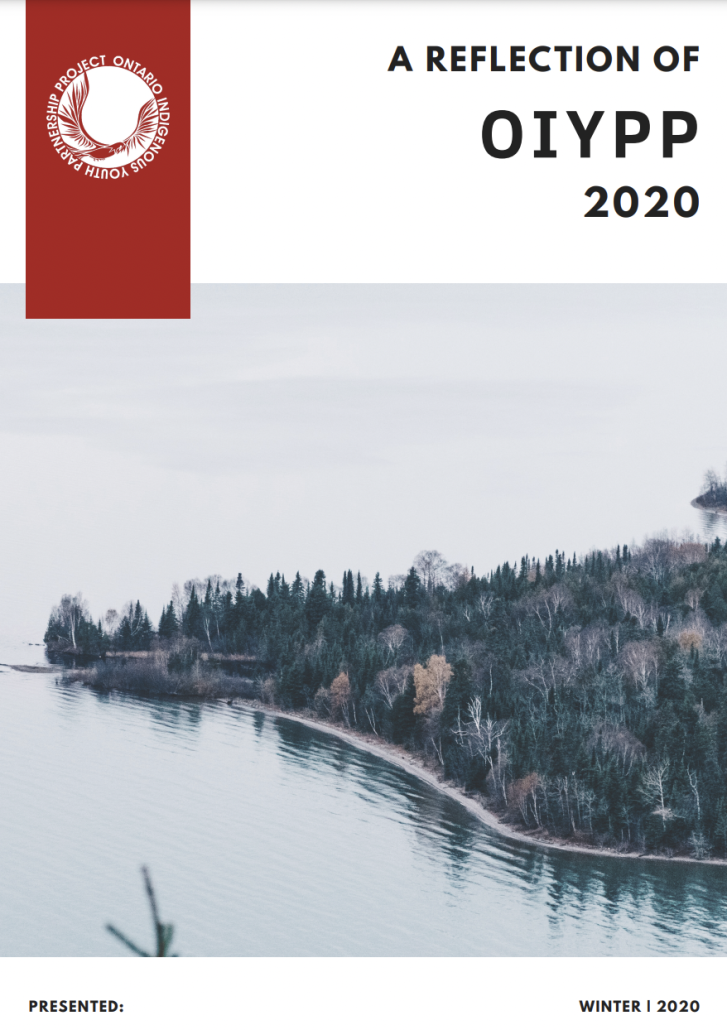Seeding Reconciliation on Uneven Ground: The 4Rs Approach to Cross-Cultural Dialogue
4Rs Youth Movement
The 4Rs Youth Movement has developed a detailed framework to engage Indigenous and non-Indigenous young people in cross-cultural dialogue. Our work is grounded in the idea that in order to change relationships, people need to share an experience together in order to engage in conversation that in both process and content encourages respect, reciprocity, reconciliation, and relevance. The Framework describes essential elements in this shared experience, within which such dialogue can take place. This kind of conversation involves bringing people together with significant differences, and grappling with the complexities of history and identity.
Honouring the Truth, Reconciling for the Future
National Centre for Truth and Reconciliation
Summary of the final report of the Truth and Reconciliation of Canada.
Truth and Reconciliation Commission of Canada: Calls to Action
National Centre for Truth and Reconciliation
In order to redress the legacy of residential schools and advance the process of Canadian reconciliation, the Truth and Reconciliation Commission makes 94 calls to action.
National Inuit Suicide Prevention Strategy
Inuit Tapiriit Kanatami
Inuit Tapiriit Kanatami’s top priority, as we identified in our 2016-2019 Strategy and Action Plan, is to take action to prevent suicide among Inuit. Suicide is a preventable public health crisis in our communities, and through the National Inuit Suicide Prevention Strategy (NISPS; “the Strategy”), we are taking steps to address this issue through evidence-based, Inuit-specific actions that can transform our society. Implementing the NISPS is an important step toward reducing the rate of suicide among Inuit to the national Canadian rate or lower.
Achieving Saimaqatigiingniq
Qikiqtani Truth Commission
From 2007 to 2010, the Qikiqtani Truth Commission (QTC) interviewed almost three hundred and fifty witnesses during public hearings, reviewed one hundred and thirty interviews taped by the Qikiqtani Inuit Association (QIA) between 2004 and 2006, and amassed an authoritative collection of historical documentation about the relationships among Inuit and governments from 1950 to 1975. Through this work, it documented in detail many of the decisions, actions, and consequences that led to the social and economic transformation of the Baffin Region.
Touchstones of Hope
First Nations Caring Society
The Touchstones of Hope is a set of principles to guide a reconciliation process within all aspects of society and is the basis for a respectful and meaningful relationship between Indigenous and non-Indigenous peoples. The success of the movement rests on the fact that it is a community driven process that fosters relationships and provides opportunities to have respectful conversations about reconciliation. This includes concrete steps for moving forward together so that all Indigenous children, youth and their families are healthy and living with dignity.
The United Nations Declaration on the Rights of Indigenous Peoples (UNDRIP)
United Nations
The United Nations Declaration on the Rights of Indigenous Peoples (UNDRIP) was adopted by the General Assembly on Thursday, 13 September 2007, by a majority of 144 states in favour, 4 votes against (Australia, Canada, New Zealand and the United States) and 11 abstentions (Azerbaijan, Bangladesh, Bhutan, Burundi, Colombia, Georgia, Kenya, Nigeria, Russian Federation, Samoa and Ukraine). Since then, the four countries voting against have reversed their position and now support the Declaration. Today the Declaration is the most comprehensive international instrument on the rights of Indigenous peoples. It establishes a universal framework of minimum standards for the survival, dignity and well-being of the Indigenous peoples of the world and it elaborates on existing human rights standards and fundamental freedoms as they apply to the specific situation of Indigenous peoples.
Towards Braiding
Elwood Jimmy and Vanessa Andreotti with Sharon Stein
Towards Braiding is an on-going collaborative process between Elwood Jimmy and Vanessa Andreotti hosted and funded by the Musagetes Arts Foundation. This collaboration involves several modes of relational engagement with Indigenous and non-Indigenous artists, scholars, and communities, including visits, gatherings and consultations, addressing the “compass questions” provided on the website.
Land Back: A Yellowhead Institute Red Paper
Yellowhead Institute
The project of land back is about reclaiming Indigenous jurisdiction: breathing life into rights and responsibilities. This Red Paper is about how Canada dispossesses Indigenous peoples from the land, and in turn, what communities are doing to get it back.
Decolonizing Climate Policy in Canada Phase 1: Critique of the PCF and the HEHE
Indigenous Climate Action
Indigenous Climate Action, in collaboration with researchers Dr. Jen Gobby, Rebecca Sinclair, and Rachel Ivey, have released an in-depth critical analysis of Canada’s recent climate policy and plans: the Pan-Canadian Framework on Clean Growth and Climate Change (PCF) and A Healthy Environment, A Healthy Economy (HEHE). This is the first phase of a two part Decolonizing Climate Policy in Canada project.
The aim of this work was to investigate whether these plans take aim at the root causes of climate change, while also respectfully and meaningfully including Indigenous Peoples and our rights, knowledges, and approaches to climate action. We also sought to examine the efficacy of the PCF and the HEHE in driving meaningful action towards stopping catastrophic climate change.
Accountability in our Lifetime: A Call to Honour the Rights of Indigenous Youth & Children
Assembly of Seven Generations
It is unclear how and if Bill S-210 contemplates the unique experiences of First Nations, Metis and Inuit children and youth, and how a Bill of this nature would uniquely impact the lives of First Nations, Metis and Inuit children and youth. The Bill does not contemplate Canada’s long-standing human rights violations against Indigenous children and youth, as substantiated by the Canadian Human Rights Tribunal (2016 CHRT 2), the Truth and Reconciliation Commission and the National Inquiry into Missing and Murdered Indigenous Women and Girls.
Youth Voices Of East Van Policy Document
Alive Society
The Youth Policy Conference captured the spirit of Youth Voices of East Van, developed as part of the 12-month Our Place, Our Home, Our Vision project funded by ESDC.
The Policy Conference brought together a diverse group of Indigenous, non-Indigenous and newcomer youth from East Vancouver and a range of stakeholders to explore innovative pathways for youth participation, youth leadership and advocacy. Ultimately we developed a policy document, through the consultation of 2000 thousand youth. Highlighting nine different policy areas and recommendations that support youth to realize their needs, and aspirations at the neighbourhood level and bring their ideas into action.
Indigenous Youth Voices: A Way Forward in Conducting Research With and by Indigenous Youth
Indigenous Youth Voices (IYV) is excited to announce that, in partnership with the First Nations Child and Family Caring Society (the Caring Society), has received the SSHRC Indigenous Research Capacity and Reconciliation—Connection Grants
Our goal is to ensure that the knowledge produced by this research will empower Indigenous youth to better identify research, programs and services that work and do not work for them, and will also support youth in conducting their own youth-led research. The knowledge shared in the gatherings will inform a position paper to SSHRC on best practices for engaging with Indigenous youth in a holistic and ethical way.
Currently, IYV has conducted 6 sessions in Ottawa, Haida Gwai, Edmonton and Toronto. Sessions included LGBTQ2S+, urban Inuit, Metis, and diverse Indigenous youth leaders from Toronto and Winnipeg.
Feathers of Hope Youth Action Plan
Feathers of Hope
We are pleased to present Feathers of Hope: A First Nations Youth Action Plan. It reflects nineteen months of planning and work including a five day youth forum in Thunder Bay, a three day youth gathering in Kashechewan/Ft. Albany, visits with youth in northern First Nations communities in Ontario, speaking engagements across the country, media interviews and more sleepless nights than we can count. Most importantly, these months of travel, discussion and listening sessions confirmed we are not alone in wanting to change the conditions of hopelessness and poverty faced by First Nations people in northern Ontario.
Finding Hope: Kids Help Phone’s Action Plan for Supporting First Nations, Inuit, and Métis Young People
Kids Help Phone
Since 1989, Indigenous young people have reached out to Kids Help Phone for professional counselling, support, information and connection to community services. While many Indigenous young people recognize Kids Help Phone as a safe place for support, we know we can, and must, do more. This means we must ensure as our services evolve, they continue to adapt to be relevant, equitable, and accessible to Indigenous young people from coast to coast to coast.
Promoting Resilience and Healthy Development in Indigenous Children and Youth Through Mindfulness-Based Practices
Finding Our Power Together
Mental health and wellness is a growing area of interest in Indigenous and non-Indigenous contexts, particularly as a result of COVID-19. Trends of mental health outcomes suggest a significantly higher rate of mental health challenges and unmet needs of mental health care among Indigenous peoples compared to white Americans. Intergenerational trauma has left Indigenous populations with vulnerabilities, and the threat of COVID-19 has only increased the risk of already existing physical, mental, and behavioural inequities. Therefore, it is crucial that accessible and culturally relevant sources of strength and resilience are available for these communities. Resources and interventions that support Indigenous mental, emotional, cultural and physical well-being must be promoted.
A Reflection of OIYPP 2020
OIYPP
The intention with this document is to tell the story of our work from this last year. We do this for a number of reasons. Yes, one would be for our funders and supporters as a way of reporting back. But we also want to be sure to share our learnings back with the youth, advisors and friends in the hopes that they can utilize it in some way, learn more about what we’re doing and give voice to the experience of the young people. This is especially true due to the unique nature of 2020 and trying to keep our good work going in the midst of a global pandemic.
Do you have something to add to this resource collection?
Please share your favourite resources with us!

